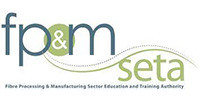EMCARE is not limited to one fire fighting course, but rather five. Each gives students the certifications and skillsets needed to fight fires in a variety of settings. This article will explore the nature of each course, looking to highlight the information relevant to supressing fires in both urban and natural environments.
Below are six key sections, starting with an overview of EMCARE’s fire fighting courses, moving onto core skills, urban fire fighting, wildfire fighting, cross-disciplinary communication and a discussion of the ideal candidates for these courses.
Overview Of EMCARE’s Fire Fighting Course
EMCARE is an organization dedicated to providing South Africa with emergency response courses of the highest calibre. Each of our courses is accredited by various agencies including the Department of Labour, Department of Mineral Resources, HWSETA, LGSETA and more.
We offer five distinct firefighting courses, including the Basic Fire Fighting Course (BF1), Advanced Fire Fighting Course (AFF), Fire Fighter 1 SP & Hazmat Awareness SP Course (FF1), Fire Fighter 2 SP & Hazmat Operations SP Course (FF2) and Hazardous Material Handling Course (HMH). Our courses are held to the highest standards possible, taught by experts with up-to-date qualifications and a minimum of one thousand work hours of experience.
Core Curriculum And Skills Taught
Students that undertake any fire fighting course will be taught a variety of relevant information and skills, beginning with a thorough understanding of fire types and behaviour. This knowledge will be the foundation for fire suppression techniques, influencing the strategies and systems used.
Students will also be taught to seek out and aid survivors using search and rescue techniques that can provably save lives. The safety of student’s life is also emphasized and is upheld via strict safety protocol drills and effective emergency planning, including use of personal protective equipment (PPE) and escape routes.
The course will involve both theoretical and practical components, where students will be put through simulations and scenario-based training to test their reaction and hone their skills.
Focus On Manmade Environment Protection
Many fire fighting course components focus on the protection of manmade structures, due to their importance to human livelihood. Students will be taught the unique challenges and techniques encountered when fighting fires in commercial or industrial areas. Trainees will be shown how fires behave In these spaces and are educated in the techniques to address the unique environments they may find themselves in, whether that be warehouses, factories or offices.
They will also be taught how to constantly evaluate and respond to risks in these high-density environments, using the right methods to protect both property and lives. With this type of training under their belts, students are receiving qualifications that can prepare them to protect the physical and economic wellbeing of countless citizens, becoming true heroes.

Focus On Natural Environment Protection
Another component of our fire fighting course will focus more heavily on combating fires in natural environments. Here students will be taught how to read and understand wildfires which can sometimes become massive raging infernos. To spur students on, our course will impress upon them the environmental impact of uncontrolled environments, highlighting key areas of vulnerable wildlife to prioritize for protection.
To avoid causing further harm, students will be taught how to employ a variety of environmentally conscious fire suppression techniques, avoiding the use of toxins. The course incorporates a strong level of physical training to prepare students for the rigorous work of supressing fires in remote and wild terrain.
Cross-Disciplinary Communication
Whether working to protect manmade structures or natural landscapes, fire fighters cannot work alone. All courses will therefore teach students how to communicate or coordinate with other rescue services such as medical, law enforcement, mountain rescue, park officials and more.
Central to this effort will be the Incident Command Centre (ICC), a common communications network used by emergency response and disaster management agencies of every variety. Students will emerge from this course with a comprehensive knowledge of radio use and communications etiquette and technique, able to clearly voice their needs and coordinate efforts over communications networks.

Who Should Enrol?
Our fire fighting course is ideal for anybody eager to join emergency services, no matter what branch of service they want to join, from first responders and outdoor workers to security personnel, volunteers and more. It can be useful for first responders to continually upskill and increase their versatility through skillset improvement.
Whilst being a firefighter is certainly a heroic job; there’s no need for it to be a selfless pursuit. Those who have the certifications after completing their fire fighting course are more likely to find opportunities for safety work around industrial or outdoor settings, where fire prevention and suppression are sought after skills.
At the end of the day, there’s nobody who would not benefit from the skills and knowledge found in a fire fighting course, even if it’s just to help further protect themselves and their families.
Conclusion
In conclusion, a firefighter’s course will include a wealth of knowledge and array of skills to empower students to protect both manmade and natural environments. EMCARE’s five accredited fire fighting courses offer a comprehensive scope of the field, from basic fire fighting to the handling to hazardous materials.
Between these courses, students will learn how to understand and predict fires, employing the right techniques to combat the flames whilst protecting others and themselves as they do so. This can be applied specifically to either manmade or natural environments, which each bear their own unique challenges that need to be adapted to, if the fire is to be fought effectively and safely.
Students will also learn how to coordinate with other emergency services to maximise their efficacy. Whether you’re a seasoned emergency services worker or a fresh face looking to test their mettle, anyone can benefit from the amazing skills within an EMCARE course. So don’t hesitate to visit our website today to learn more about the variety of safety course we offer and what they entail.















